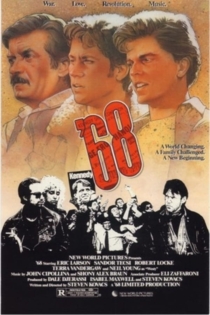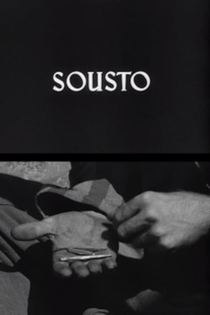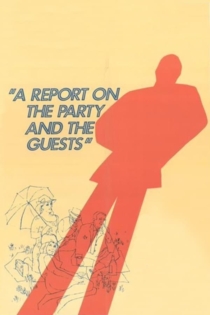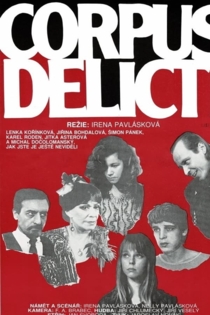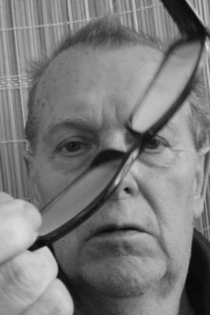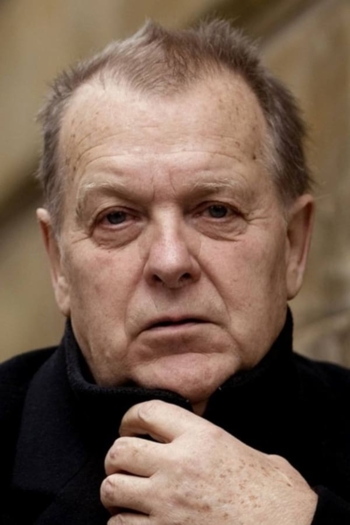
Jan Němec
1936 - 2016Oratorium pro Prahu
Jan Němec
Gene Moskowitz
Filmmaker Jan Nemec and his crew risked their lives to create this historic documentary account of the 1968 Soviet invasion of Czechoslovakia. The award-winning work is the only filmed record of the invasion. Oratorio for Prague began as a study of the liberalization of Czechoslovakia and then continued when the Russian forces moved in. The gripping footage was broadcast by television, providing the first report of the event. In addition to the news footage, the film features never-before-viewed scenes taken prior to the invasion that crushed Prague's anti-Communist movement.
Oratorio for Prague

Pátrání po Ester
Věra Chytilová
Ester Krumbachová, Věra Chytilová
Ester Krumbachová - a costume designer, screenwriter, director; one of the boldest personalities of the Czech New Wave. She worked in theatre, she was a writer and an illustrator. She co-created films such as O slavnosti a hostech (1966), Sedmikrásky (1966), Vsichni dobrí rodáci (1969), Pension pro svobodné pány (1968), Valerie a týden divu (1970), Slamený klobouk (1972) and many others. In the 1960s, she was a 'pivot' of the art scene in Prague, attracting artists who were on the threshold of their career, just setting out to find their own form of self-realization. Those who underwent her tutelage remember her forever. Director Vera Chytilová talks to those who knew Ester Krumbachová, who worked with her, befriended her, loved her. She sets off on a search that is to end by answering the question: Who was Ester?
Searching for Ester
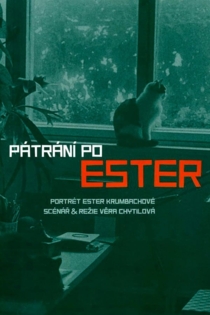
Diamonds of the Night
Jan Němec
Ladislav Jánsky, Antonín Kumbera
A tense, brutal story of two Jewish boys who escape from a train transporting them from one concentration camp to another. Ultimately, they are hunted down by a group of old, armed home-guardists. The film goes beyond the themes of war and anti-Nazism and concerns itself with man's struggle to preserve human dignity.
Diamonds of the Night
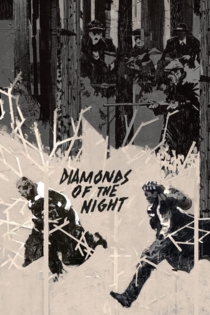
Holka Ferrari Dino
Jan Němec
Karel Roden, Jan Budař
It's nighttime in Prague, 21 August 1968. Soviet troops and tanks are occupying the city - random attacks, soldiers shooting, bodies lying dead on the sidewalk. With an impromptu crew, the director (Karel Roden) captures some unique evidence - material which is, however, worthless in occupied Prague; it has to be shown to the rest of the world. So, while the Soviets are concocting false reports of heartfelt receptions without military resistance for propaganda purposes, the director sets off on a risky trip across the closed Czech-Austrian border to Vienna.
The Ferrari Dino Girl
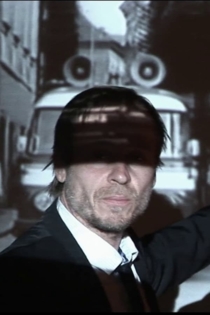
Vražda ing. Čerta
Ester Krumbachová
Jiřina Bohdalová, Vladimír Menšík
Comedy with fairy-tale touches, about Kate, who wants to marry, and Mr. Devil, who is not interested in the heart or soul of this passionate and aging lady, but is interested in her good cooking – for Mr. Devil is a glutton.
The Murder of Mr. Devil
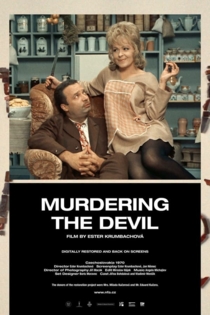
Toyen
Jan Němec
Zuzana Stivínová, Jan Budař
Jan Nemec, a leading filmmaker of the Czech New Wave, creates an original portrait of one of the most provocative artists of the 20th century: Toyen (Marie Cerminova). As a female artist, Toyen broke through the male-dominated art world to create paintings and drawings often erotic in nature. She co-founded the surrealist movement in her native Prague, survived the Nazis and the Communists, maintained artistic and personal relationships with artists Jindrich Heisler (whom she hid during WWII) and Jindrich Styrsky.
Toyen

Mučedníci lásky
Jan Němec
Petr Kopřiva, Hana Kuberová
This three-part ballad, which often uses music to stand in for dialogue, remains the most perfect embodiment of Nemec’s vision of a film world independent of reality. Mounting a defense of timid, inhibited, clumsy, and unsuccessful individuals, the three protagonists are a complete antithesis of the industrious heroes of socialist aesthetics. Martyrs of Love cemented Nemec’s reputation as the kind of unrestrained nonconformist the Communist establishment considered the most dangerous to their ideology.
Martyrs of Love
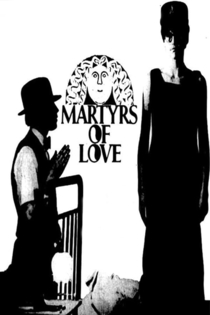
Perličky na dně
Jaromil Jireš, Evald Schorm
Ferdinand Krůta, Alois Vachek
A manifesto of sorts for the Czech New Wave, this five-part anthology shows off the breadth of expression and the versatility of the movement’s directors. Based on stories by the legendary writer Bohumil Hrabal, the shorts range from the surreally chilling to the caustically observant to the casually romantic, but all have a cutting, wily view of the world.
Pearls of the Deep
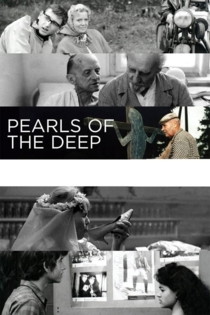
Noční hovory s matkou
Jan Němec
Karel Roden, Václav Havel
Taking a cue from Franz Kafka's "Letter to My Father," this highly personal film follows Czech director Jan Nemec as he attempts to engage in a dialogue with his deceased mother. While alive, Nemec's mother had a troubled relationship with her son; this rumination seems to be Nemec's public platform for coming to terms with unresolved familial issues. The director embellishes his film by linking personal events with 20th century history.
Late Night Talks with Mother
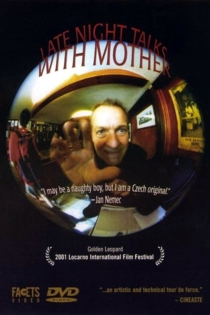
'68
Steven Kovacs
Eric Larson, Robert Locke
'68 covers exactly one year (January 1st through December 31st) in the lives of Zoltan Szabo and his family, Hungarian immigrants, working hard to make a life in San Francisco in 1968. The Szabos tries to adjust to the new country, changing times and each other. The year covered was one of particular cultural change in the US and this interplays with the cultural changes occurring around Zoltan, his wife and his two college-age sons. The younger of his two sons is gay and struggling with coming out. His dad disowns him when he finally does.
'68
